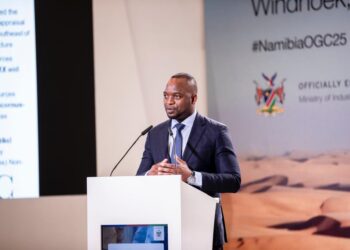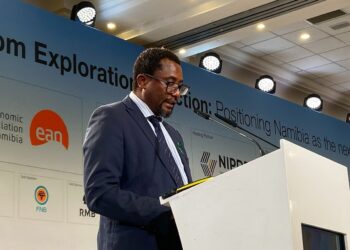
The European Union (EU) has committed N$19.5 million to Namibia’s Good Governance initiative, aimed at strengthening transparency and advancing sustainable development in the country.
The program, co-designed with the Namibian government and key stakeholders, prioritizes the implementation of the National Anti-Corruption Strategy and Action Plan (NACSAP) to curb corruption and illicit financial flows.
“With the contributions from the EU to UNDP, we will support Namibia in its continued efforts to achieve the national development goals in building a transparent and equitable society, that is resilient to corruption and deeply rooted in the principles of rule of law,†EU Ambassador to Namibia, Ana Beatriz.
“Corruption exacerbates inequalities, especially when funds meant for healthcare, education, and infrastructure are misdirected or misappropriated. Corruption also distorts competition, hinders economic growth, and erodes public trust in institutions. Therefore, addressing corruption is a global imperative, that is enshrined in the UN Sustainable Development Goals, so that resources can go to where they are most needed.â€
The initiative, set to run from 2025 to 2028, aligns with the EU’s mission in Namibia to promote governance, human rights, and sustainable development.
Speaking at the launch event, UNDP Country Representative Alka Bhatia underscored the damaging effects of corruption on democracy and development.
“Corruption erodes democracy, undermines human rights, and perpetuates inequality. In 2018, Namibia recorded over 872 corruption cases with the ACC, many of which remain unresolved. This has fueled public frustration, economic hardships, and perceptions of impunity for the powerful,†Bhatia said.
She added that the initiative aligns with Namibia’s Harambee Prosperity Plan, the upcoming Sixth National Development Plan, Vision 2030, and the United Nations Sustainable Development Cooperation Framework.
The program incorporates various measures to promote transparency, accountability, and integrity across sectors.
These include enhancing access to government information to improve transparency, strengthening financial management systems to protect public resources, and revising anti-corruption legislation to align with international standards.
The initiative will also empower Namibia’s Anti-Corruption Commission (ACC), enabling it to play a stronger role as the NACSAP secretariat.
Additional efforts include providing grants to civil society organizations engaged in anti-corruption efforts, revising mechanisms for allocating fishing quotas to ensure fairness, and aligning legislation with international standards in the extractive industries.
Efforts will also focus on fostering stakeholder dialogue, promoting collective action, and investing in capacity-building programs for institutions and individuals.
Bhatia noted that these measures are critical to restoring public trust and ensuring resources are directed where they are most needed.
World Economic Forum data, estimates the economic impact of corruption at over US$ 3.6 trillion annually, representing about 5% of global GDP.











